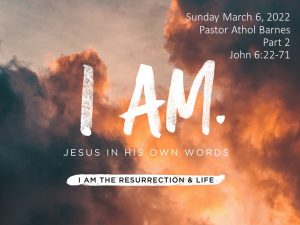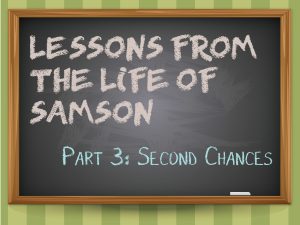
Church numerical growth has been a topic of study for decades. Many books have been written and seminars delivered. However, there is a very simple three-word prescription for church growth, “Love One Another”.
It might sound simplistic, but it is one of the most challenging things to do.
The apostle John is a succinct writer who simplifies the Christian life down to the essential elements, know Jesus, obey God, and love others.
John uses the term “beloved” six times in this letter. John makes the case that the love of God is essential for us to be able to love our brothers and sisters. We aren’t called to love out of duty or legalism, that would be hypocritical. What John is writing about is a supernatural love, seen and experienced in those who abide in Jesus. This is the love that is the fruit of the Spirit.
There is way more to this supernatural love than a mushy, warm and fuzzy experience, there is power in this love. As we see in verse 8, perfect love as revealed in the life, death, and resurrection of Jesus Christ has dealt a death blow to darkness. Darkness is on the run, and it cannot outrun the light. How we love one another gives evidence of all of this.
The love of Christ in us is not a shallow sentimental emotion. It is a matter of the will not of feelings. Christlike love is a determined decision to allow the love of God to reach others through you. Christlike love is the essential ingredient of true evangelism.
The best explanation of Christian love is found in 1 Corinthians 13. This chapter is not a text for weddings or valentine’s day messages, it is a day-to-day church passage. It is the prescription for how we are to live as the body of Christ.
The love of God is given to the church supernaturally for the building up of the church (Romans 5:5). God has poured his love into the hearts of everyone who has given their lives to the Lordship of Jesus.
John’s life was transformed by this supernatural love. He was not always loving, he and his brother James were known as the “sons of thunder”, because of their emotional outbursts. In Luke 9, James and John asked Jesus if they could call down fire from heaven to destroy the Samaritan village who rejected Jesus. John was transformed by the power of the Holy Spirit, and he loved as Jesus loved.
And there is good reason why this love is supernatural, because it is a cosmic war between light and darkness. The world of light and love always go together (1 John 2:9-10).
The natural question that follows is, who is my brother? The Greek word used for brother here means a person who lives close by, literally my neighbor. Well, who is my neighbor? Jesus addressed this in Luke 10 by telling the parable of the Good Samaritan. Jesus explained that our neighbor is the person in front of us right now. The person in need, the person we work with or the person we bump into while walking into the store. Are you aware of your neighbor? Those daily opportunities to love the way Jesus loved.
Verse 11 returns to those who are in darkness, “But whoever hates his brother is in the darkness and walks in the darkness, and does not know where he is going, because the darkness has blinded his eyes.”
If you hate someone, you are walking blindly in continual darkness. This kind of darkness is spiritual death. Hatred is blinding people today and this happens in the church as little disagreements creep in, and relationships are broken.
This kind of blindness can creep into the church in many ways. It is not necessarily through arguments. Sometimes blindness can creep into the church in the form of doctrine and spiritual elitism. People have their favorite doctrine, theology, or experience and if they are not careful, they become critical of others who do not share the same view or experience. This kind of person thinks he is a spiritual giant, having it all figured out, but really, he is a spiritual babe, lacking the ability to discern what is important, loving one another. Some people are so in love with their doctrine and “rightness”, that they have lost their love for their fellow brothers and sisters in Christ.
In recent years it seems that we have lost the ability to disagree and still love each other.
It is impossible to be in fellowship with the Father and out of fellowship with another Christian at the same time. The Christian life has two relationships: the vertical (Godward) and the horizontal (manward). We need both, which is why gathering for worship and fellowship on a Sunday morning is so vital to our spiritual health.
If you put a group of people in a room long enough, someone is going to get offended. So how do we respond?
The follower of Jesus who has been offended must understand two things;
1) I have no right to be offended. I gave up my rights when I asked Jesus to be Lord of my life.
2) Harboring unforgiveness only harms the offended person.
“Unforgiveness is like drinking poison yourself and waiting for the other person to die.”
Marianne Williamson
Loving one another in the church is very practical and essential for the health of the church.
Practically we love each other by:
- Serving one another. Stepping up and volunteering when there is a need.
- Love one another through theological differences. Jesus was critical of the pharisees, not because of their doctrine, but because they didn’t care for the flock.
- Love one another through joy and pain. Carry one another’s burdens, look for practical ways to care when someone is hurting.
- Love one another on mission. Serving alongside each other as we share the Gospel in our community.
- Love one another by confronting sin. Do we love one another enough to call out a brother or sister who is living in sin?
- Love one another to grow spiritually. Just as the fruits and flowers need sunshine, so God’s people need love if they are going to grow.
How are you loving each other today?








 Judges 16
Judges 16


